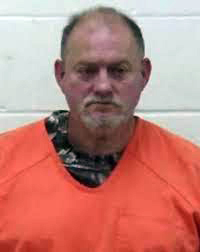
ISLAMABAD, Pakistan (BP)–Fear grips the mountainous peoples of Pakistan -– not always a panicked fright, but usually a quiet, compliant dread.
They fear frequent aftershocks that continue to topple buildings. They fear facing winter without adequate shelter and provisions. They fear aid will never reach them or that there will not be enough for everyone. They fear the chaos of relief camps.
They fear the unknown.
“There have been several aftershocks along the way,” said Thad Crisler*, a worker directing Southern Baptist disaster relief efforts in Pakistan. “One of the biggest effects for earthquake survivors is it just scares them…. It’s a reminder of what happened last time. The fear just regenerates in them.”
At the home of a man named Shezar in Mansehra, the Oct. 8 earthquake crumbled a wall, but his house remained standing –- until 11 days later when an aftershock registering 5.8 in magnitude reduced his family home to rubble.
Like so many Pakistanis, Shezar’s family was not staying in the house. They are living in a tent in their yard. Shezar’s older brother was hurt in the initial quake when a wall fell on his chest, but none of his family has been injured in the aftershocks.
Aftershocks have been a near daily occurrence since the initial 7.6-magnitude earthquake that ended more than 50,000 lives and robbed nearly 3 million of shelter. For anyone, the aftershocks can be frightening. Because of aftershocks, some Southern Baptist volunteers are foregoing comfortable beds to sleep outside in tents.
“I’ve never run out of a house before for an earthquake,” relief worker Josie Gabdon* said. “But after seeing those schools, I don’t stay inside anymore. I used to stand in the doorjamb, but I saw those doorjambs.”
Aftershocks killed five people during the weekend of Oct. 22, according to news reports.
Crisler said he does not expect the aftershocks to hamper relief work, as long as a new earthquake does not cause additional damage. Landslides are common this time of year, even without seismic activity, he said.
“The biggest issue for accessibility is the oncoming winter,” Crisler said. “After Dec. 15, a lot of stuff is going to be absolutely shut down. A lot of places that are accessible now are not going to be accessible then.”
MOUNTAIN EXODUS
The threat of spending a cruel winter without shelter has prompted an exodus from mountain villages to crowded relief camps and cities. Men packed the backs of pickup trucks -– surrounding burka-clad women hovering in the center of the truck bed. Many of the women have never before left their mountain homes. Fear fills their hearts with thoughts of what might await them at relief camps or in cities.
On Wednesday, Oct. 26, Pakistan’s prime minister urged the mountain peoples to migrate to the valleys before winter. The ideal, however, is to help them survive where they are, said Philip Monroe*, a Southern Baptist disaster relief specialist serving in Asia.
“It will not bode well for the victims of this earthquake if they are forced to move to refugee camps,” he said. “We need to do as much as possible to facilitate recovery for the victims in the areas where they now live.”
Southern Baptist workers and volunteers are focusing their immediate efforts on trying to reach patients in more inaccessible places while they can. They are flying to isolated villages by helicopter, treating the less severely injured patients and evacuating the more critical patients to hospitals. Other Southern Baptist volunteers are serving in those hospitals.
“There are still a bunch of medical needs up there high in the mountains that are accessible only by one- or two-day trek,” Crisler said. “Once the winter hits, they’ll die because there’s no way to take care of them after that.”
Southern Baptist workers also are providing food staples to remote villages. They have been taking tents and supplies to villagers since Oct. 9, the day after the earthquake. On Oct. 20, they conducted their first wide-scale food distribution. Assisted by Great Commission Christians and local Pakistanis, Southern Baptists took about 10 tons of food to one town that serves as a hub for several villages. The distribution went well until Pakistanis from the town allowed fear to take over.
“We were able to distribute food to approximately 350 families without incident,” Monroe recounted. “However, when the local leader decided that he would no longer assist us, we had to withdraw from the area to ensure the safety of our distribution team and the safety of the children who could have easily been trampled upon if we had suddenly opened the distribution to the public.
“During the regress, we found that the road had been blocked by locals farther up the road, and the driver had abandoned his vehicle,” Monroe said. “The vehicle then blocked a second vehicle that was half loaded with supplies intended for distribution that day. The locals then took it upon themselves to take the remaining supplies from the trucks. I expected a possible rush on the vehicles but had not planned for such a rush to take place in the form of an ambush a distance from the initial distribution site.”
The distribution location is one that Southern Baptist workers believe God has led them to focus on long-term. A rush on relief goods is not unusual when people become concerned they will be overlooked or left out. After meeting with area leaders, Southern Baptist workers returned to the site Oct. 25 to distribute food and blankets. The distribution went so smoothly that workers had seven packages left over.
Distributing food and blankets is a first step in helping the villagers stay in the areas they call home. Providing shelter is the next critical step.
“The No. 1 need right now is still shelter, tents,” Crisler said. “That’s where the priority is. That’s where our energy is going right now is shelter. People basically have sustenance food-wise. The shelter is key. Once again, with winter approaching, we need family-size tents that are winterized.”
The greatest long-term need of all is a relationship with Jesus Christ.
“[Jesus Christ] will direct us into the work that will enhance the opportunities for them to hear,” Monroe said. “At this point in time, it is imperative that our Southern Baptist churches support us in prayer. We need spiritual discernment to do those things that are of the most importance to our Lord. We need protection from the evil that ensues from desperation.
“We also need a view of suffering that only God Himself can give to us. Without His view of suffering, we cannot join people in their suffering in such a way as to encourage them to seek God’s way as the only way.
“Hard months lie ahead for the victims of this earthquake and for our personnel. However, none of this has happened outside of God’s attention and love for the people of Pakistan.”
While today fear seizes the hearts and minds of the Pakistani people, Southern Baptist workers and volunteers are hoping that one day soon earthquake survivors -– who primarily are Muslims -– will understand that God’s perfect love casts out all fear.
“Pray that through the relief efforts -– that through food, through shelter, through medical aid, through all the efforts that are made in the relief -– that Jesus will be seen,” Crisler said.
For more information on current and future volunteer needs, e-mail [email protected]. To contribute financially to relief efforts, send gifts designated for “South Asia Earthquake Relief” to P.O. Box 6767, Richmond. VA 23230. Or go online to http://www.imb.org/worldhunger and select “Give Now.” One hundred percent of the gifts will go for relief aid.
–30–
*Names changed for security reasons.
















